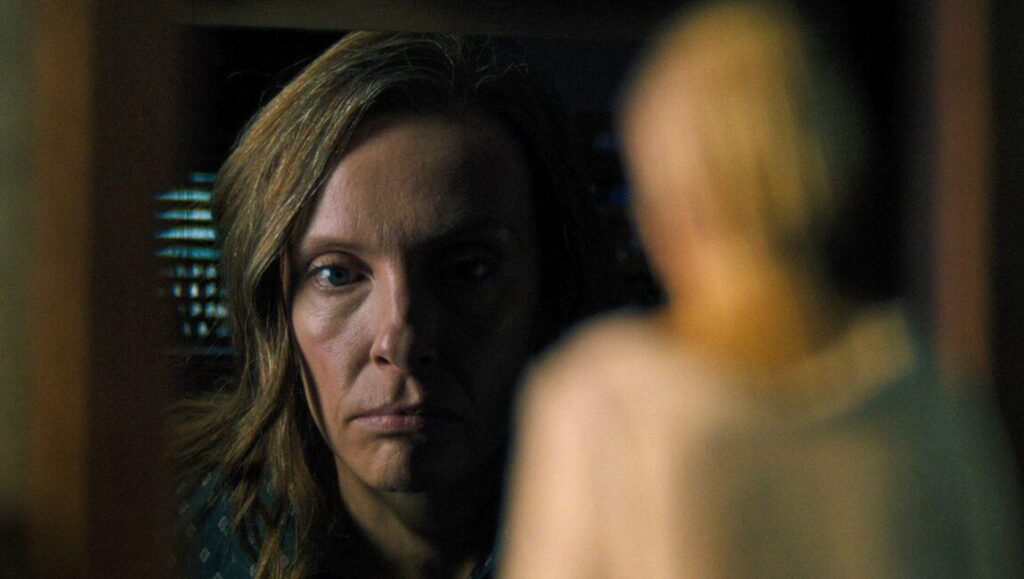No other company right now is playing the is-it-or-isn’t-is-a-horror-film game quite like A24. Blumhouse has their straightforward genre thrills down pat, with the occasional Purge film to expand their scope and dabble in some totally unsubtle social messaging. But A24, whether working in horror with sci-fi elements or horror as historical drama or horror with apocalyptic, mankind-is-the-real-enemy overtones has collected a roster of polished, deliberately scary arthouse films that the distributor still doesn’t seem to want to be labelled explicitly as horror films. All of which is to say that Hereditary, A24’s latest release, could come close to being merely classified as an excellent family melodrama — except the horror aspects are so expertly crafted and shockingly grotesque.
This might have been too jarring a contrast if the family weren’t so strange and off-putting in their own right. Introduced giving a eulogy for her mother, Annie Graham (Toni Collette) can hardly muster a kind word and instead speaks of a distant, cold woman from whom she was estranged for long portions of her life. Later, speaking candidly at a grief support group, Annie unfurls a disturbing family history involving depression, suicide, schizophrenia, and hints of some unknowable horror that will come into sharp focus by the end of the film. Hereditary finally hinges on Collette’s performance, which can be volcanic in its rage and its sorrow and or be subdued and scaled back, as Annie struggles to maintain her sanity. Colette threads a unique character study with equal parts sincerity and camp, revealing the deep, dark depths of a woman who doesn’t seem to like her family, who may resent them, and yet who clings to her kin all the same.
Aster isn’t afraid to let a scene run long and build to either a shattering closeup of Collette’s face writhing in pain or to several of the shocking acts of violence that are peppered throughout Hereditary.
Together with cinematographer Pawel Pogorzelski, first-time feature director Ari Aster masterfully orchestrates long, languid tracking shots and slow pans juxtaposed with extreme close-ups that keep the viewer off-kilter. There are frequent static, tableau compositions that mimic the miniature models that Annie constructs in her workshop (if the Graham family home seems somehow artificial, not really lived in, that’s certainly part of the point). Aster also isn’t afraid to let a scene run long (perhaps a bit too long in a couple of cases) and build to either a shattering closeup of Collette’s face writhing in pain or to several of the shocking acts of violence that are peppered throughout Hereditary. The last few minutes of the film turn into all-out mayhem, capped by a bizarre act of ritual sacrifice that invokes both The Wicker Man and Ben Wheatley’s underrated Kill List. It might not make perfect sense, in a narrative way, but it somehow feels right for the film, or rather, it feels so wrong, so horrible that it can be the only way to end such a grueling experience. Family, religion, ritual — Hereditary asks if we can ever really escape these things, and answers with a resounding ‘no.’


Comments are closed.